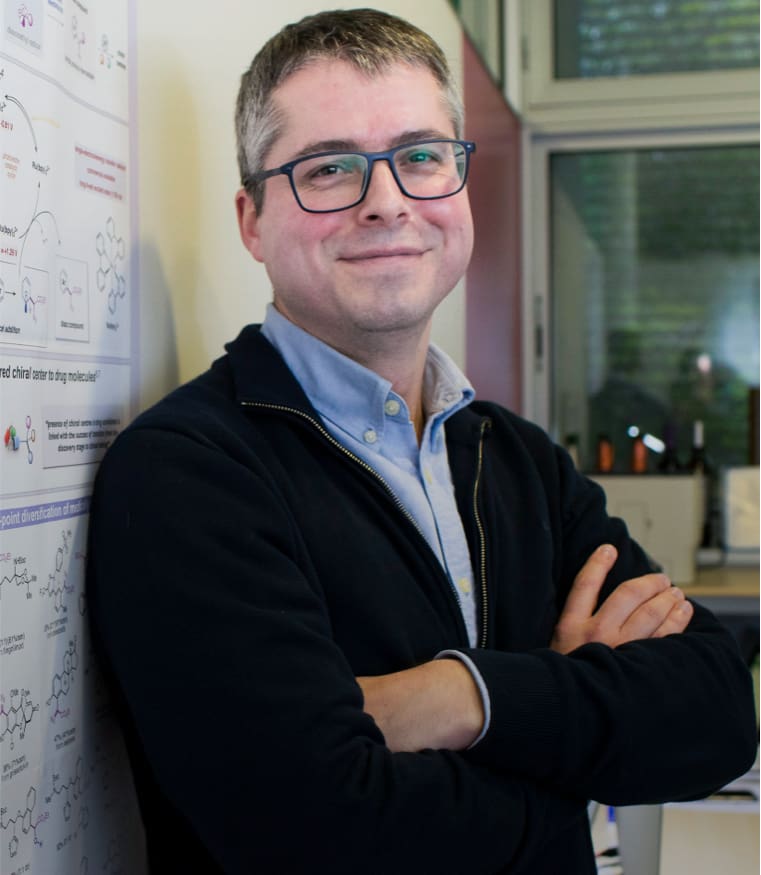Generating carbyne equivalents with photoredox catalysis
Carbon has the unique ability to bind four atoms and form stable tetravalent structures that are prevalent in nature. The lack of one or two valences leads to a set of species—carbocations, carbanions, radicals and carbenes—that is fundamental to our understanding of chemical reactivity1. In contrast, the carbyne—a monovalent carbon with three non-bonded electrons—is a relatively unexplored reactive intermediate2,3,4,5,6; the design of reactions involving a carbyne is limited by challenges associated with controlling its extreme reactivity and the lack of efficient sources7,8,9. Given the innate ability of carbynes to form three new covalent bonds sequentially, we anticipated that a catalytic method of generating carbynes or related stabilized species would allow what we term an ‘assembly point’ disconnection approach for the construction of chiral centres. Here we describe a catalytic strategy that generates diazomethyl radicals as direct equivalents of carbyne species using visible-light photoredox catalysis. The ability of these carbyne equivalents to induce site-selective carbon–hydrogen bond cleavage in aromatic rings enables a useful diazomethylation reaction, which underpins sequencing control for the late-stage assembly-point functionalization of medically relevant agents. Our strategy provides an efficient route to libraries of potentially bioactive molecules through the installation of tailored chiral centres at carbon–hydrogen bonds, while complementing current translational late-stage functionalization processes10.
Furthermore, we exploit the dual radical and carbene character of the generated carbyne equivalent in the direct transformation of abundant chemical feedstocks into valuable chiral molecules.

Z. Wang, A.G. Herraiz, A.M. del Hoyo, M.G. Suero
Nature 2018, 554, 86-91
DOI:
10.1038/nature25185

Let's create a brighter future
Join our team to work with renowned researchers, tackle groundbreaking
projects and contribute to meaningful scientific advancements



















